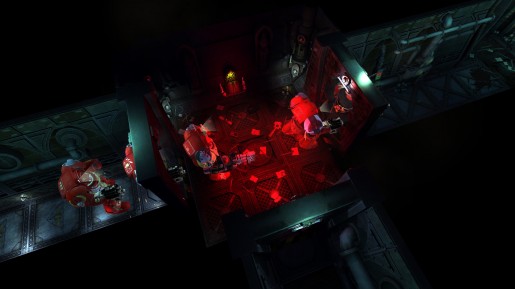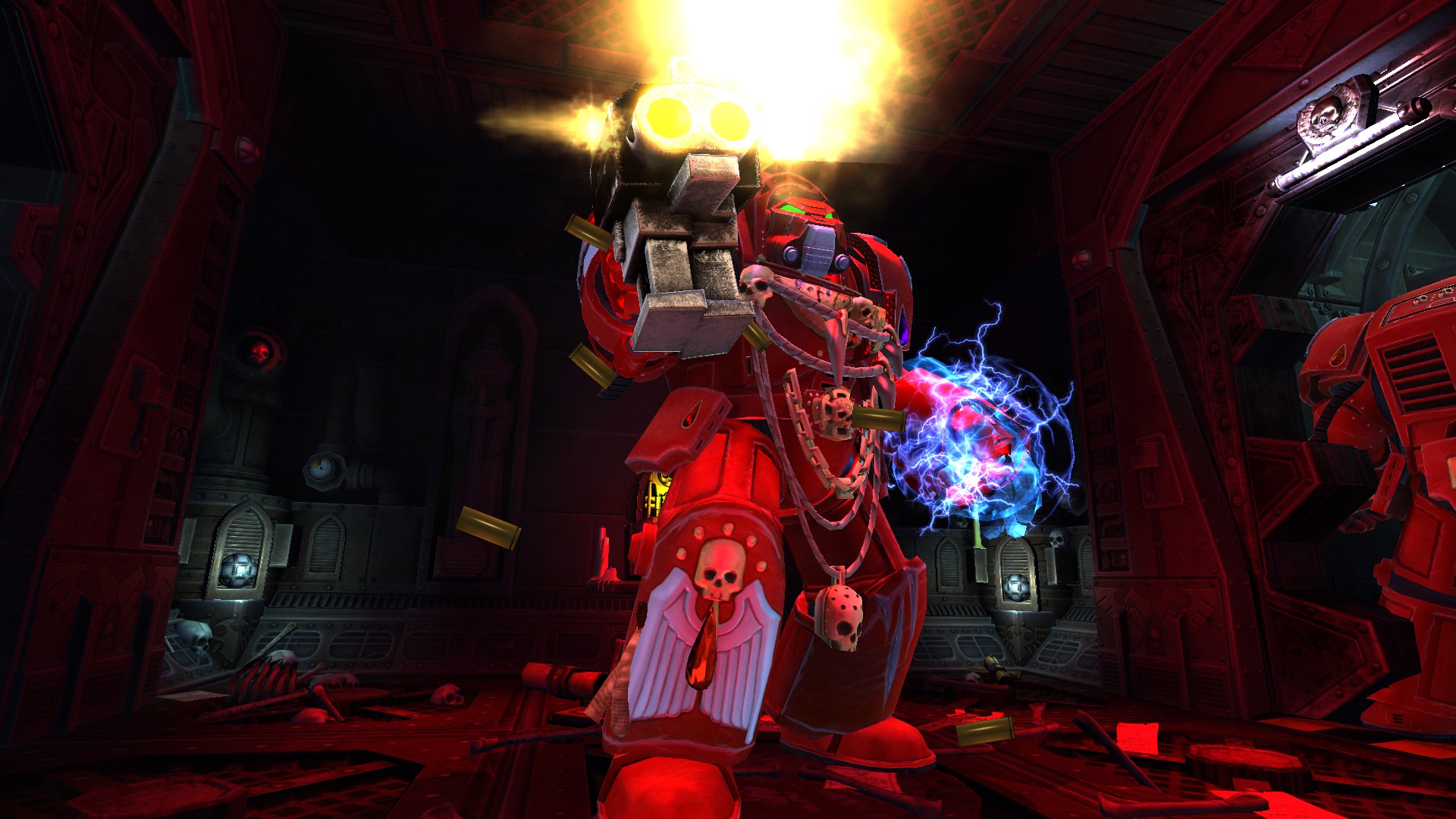 Space Hulk is a turn-based strategy title which is an adaptation of the classic 1989 boardgame, rather than a remake of the videogames from the early ’90s. Set in Games Workshop’s well known Warhammer 40,000 (40K) universe, the game sets the heavily armoured space marine terminators of the Blood Angels chapter against the Genestealers – fast and deadly aliens. The term space hulk refers to an amalgamation of assorted derelict spacecraft, a haunting and claustrophobic maze where the game takes place. Read on to see what I made of it.
Space Hulk is a turn-based strategy title which is an adaptation of the classic 1989 boardgame, rather than a remake of the videogames from the early ’90s. Set in Games Workshop’s well known Warhammer 40,000 (40K) universe, the game sets the heavily armoured space marine terminators of the Blood Angels chapter against the Genestealers – fast and deadly aliens. The term space hulk refers to an amalgamation of assorted derelict spacecraft, a haunting and claustrophobic maze where the game takes place. Read on to see what I made of it.
HOT
Authenticity
This videogame version features the 12 mission campaign from the first and third versions of the boardgame, as well as 3 additional prequel missions which effectively act as a tutorial. These missions are all playable solo with the player in control of the space marines, or in multiplayer (both online and in hotseat mode) with another player taking control of the Genestealers.
The game almost exactly replicates the original rules with only a few minor tweaks, which in my opinion is only a good thing as I love the boardgame. This adherence to the rules is complimented by the very faithful level and character design, with most of the tiles making up the maps and each individual trooper closely emulating the tabletop counterpart. For fans of the boardgame or the 40K universe in general this authenticity is a wonderful touch, with the game world really brought to life, from the slow, hulking motion of the terminators to the squelch of a Genestealer as your men tread over the corpses.
 Tight, Focused Gameplay
Tight, Focused Gameplay
The boardgame is a highly focused experience – the exact positioning of each of your troops and every roll of the dice has an effect, often meaning the difference between life and death for your men. This focused experience translates across almost exactly due to the fact that at the core this version of Space Hulk is the boardgame, which to me is only a good thing.
One thing to bear in mind is that most actions which you perform rely on dice rolls to determine success or failure. These dice rolls lead to a greater degree of randomness than one might expect from most video games – while you can do everything perfectly, setting up your troops to make your odds of success as great as possible, you can still fail. While that sounds like a warning honestly I like it, it forces you to prepare for failure and adapt when the worst happens. The randomness also allows some epic moments when the dice gods act in your favour; there’s a certain joy when a successful series of rolls obliterate the enemy against all the odds.

